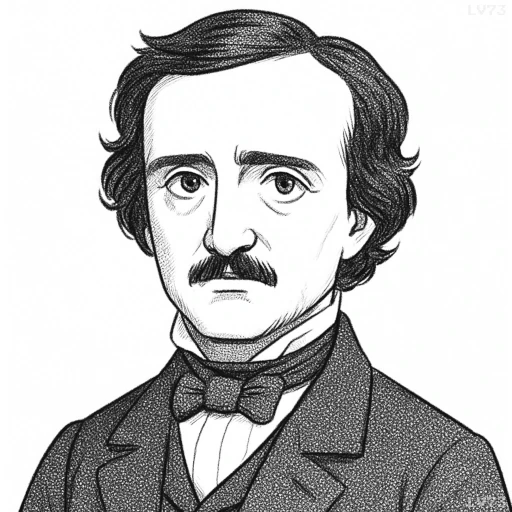“The generous Critic fann’d the Poet’s fire, And taught the world with reason to admire.”

- January 19, 1809 – October 7, 1849
- American
- Novelist, poet, critic
table of contents
Quote
“The generous Critic fann’d the Poet’s fire, And taught the world with reason to admire.”
Explanation
In this quote, Edgar Allan Poe praises the role of the critic in shaping the artistic world. The “generous critic” is portrayed as someone who doesn’t simply evaluate or judge the poet’s work but actively nurtures and encourages the poet’s creativity. The critic “fanns the poet’s fire,” suggesting that the critic’s insights and feedback fuel the poet’s passion and drive. Poe also notes that the critic helps the world to admire the poet’s work by guiding readers to appreciate it through reason. This highlights the symbiotic relationship between the artist and the critic, where the critic’s role is not to dismiss but to enhance the understanding and value of the art for a broader audience.
Poe himself was highly conscious of the role of both the artist and the critic in the literary world. As a writer and editor, he often navigated the delicate balance between creating art and responding to public scrutiny. Poe believed that a true critic should do more than just criticize; they should be capable of offering constructive feedback that elevates the art form and guides public opinion. This view was in contrast to the often harsh, dismissive tone of many critics of his time, who he believed were more concerned with trivial judgments rather than fostering appreciation for true talent.
In modern contexts, this quote can be seen as a reminder of the positive impact that thoughtful, generous criticism can have on creative work. Today, critics, whether in literature, film, or art, still have the power to shape public perception, but their role should be more than just evaluating—they should help others understand and appreciate the deeper value of the work. This approach is particularly relevant in an era where social media has given rise to both praise and scathing reviews from the public, often without the kind of nuanced, constructive insight that Poe advocates. The generous critic, as Poe suggests, should be someone who guides the audience to truly understand and admire the work, enriching both the artist’s process and the viewer’s experience.
Would you like to share your impressions or related stories about this quote in the comments section?


